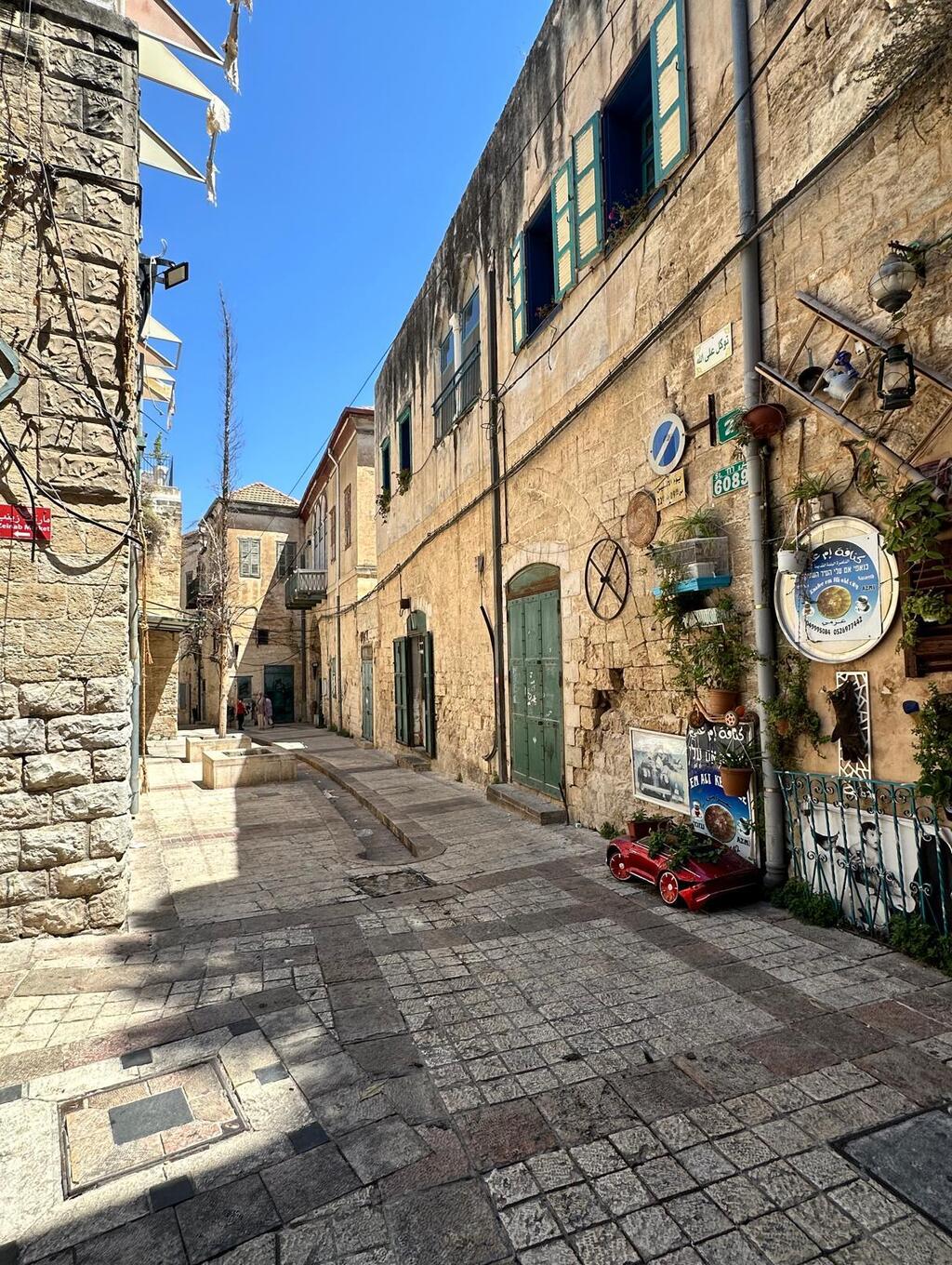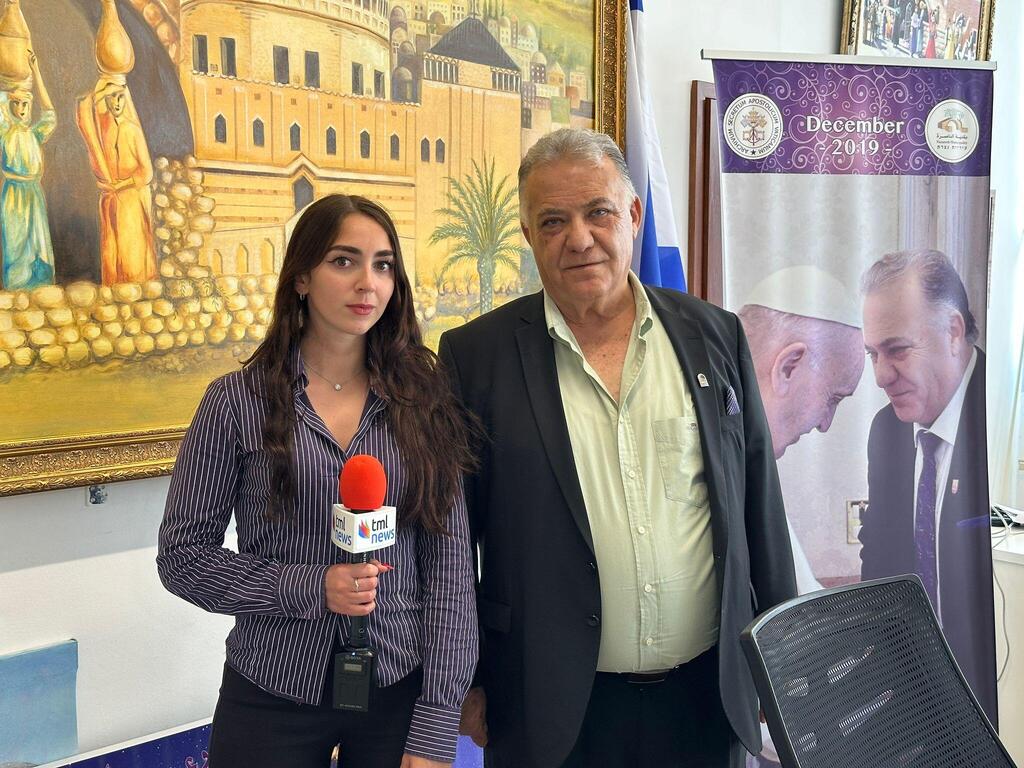Getting your Trinity Audio player ready...
Nazareth, Israel’s largest Arab city and the second-largest city in the north after Haifa, is grappling with a severe economic crisis now that tourism has dried up due to the ongoing war. With most businesses closed, insufficient shelters and uncollected trash piling up on the streets, the city’s future remains uncertain.
Mayor Ali Salam attributes the city’s struggles not only to the absence of tourists but also to budget disparities between Arab and Jewish cities in Israel.
“The central government doesn’t provide us with the same economic support it gives Jewish cities," according to Salam. "My budget is 500 million shekels [$135 million], not the 800 million shekels a Jewish city would receive,” he charges.
2 View gallery


Everything is closed in Nazareth's Old City due to the lack of tourism
(Giorgia Valente/The Media Line)
“If this were a Jewish city, the budget would be more. But because we are an Arab city, made up of Muslims and Christians, we are treated differently. We still feel treated as second-class citizens – not just because we are Arabs, but because we do not receive the economic resources we deserve,” Salam continued.
In February 2024, Finance Minister Bezalel Smotrich enacted a 15% budget cut for the Arab sector, rolling back previous investments and exacerbating unemployment, poverty and crime. This move has also slowed integration efforts and harmed Israel’s overall economic growth, which had benefited from a five-year plan for the Arab sector.
“Things are falling apart. The situation is deteriorating, and we cannot continue like this,” says the mayor. “The economic situation is dire. With the school year starting on September 1, families need to buy books and supplies, but many cannot afford them. We need a larger budget to support them. We also need to cover the monthly salaries of school staff, which range from 10,000 shekels to 15,000 shekels. This will be a significant challenge.”
“Many students will start the school year without books or supplies. In the Old City, everything is closed due to the complete halt in tourism. Even here, we are struggling. Only half of the municipal staff is working today, and we need to figure out how to pay their salaries,” he added.
According to Ameer Bisharat, CEO of the National Committee of Heads of Arab Local Authorities, a previous agreement between Ra’am (or the United Arab List, the party led by Member of Knesset Mansour Abbas) and Prime Minister Benjamin Netanyahu’s coalition promised 200 million shekels for Nazareth, but the funds have yet to be delivered due to political tensions after October 7.
2 View gallery


Nazareth Mayor Ali Salam with The Media Line's Giorgia Valente
(Dario Sanchez/The Media Line)
“It doesn’t matter that we are also citizens. It is a political move made by the current government, which no longer includes representatives of the Arab sector. This is discriminatory and unfair; in fact, we are going to court in October,” says Bisharat.
Nazareth is grappling with rising crime, fueled by unemployment and the influence of local gangs who have gained control over parts of the city.
“When you have less investments and less employment and more young people who have poor education and no alternative offered by the city, it is common to see them join criminal gangs, which give them money to work for them, even for killing,” Bisharat said.
He added that while police are more focused on cracking down on pro-Palestinian sympathizers, they neglect the city’s escalating crime problem.
“We have a lot of crime, and the police don’t really do their job. They come check our IDs while we are sitting in the café, so they’re not doing their job for us, but against us. Even if I have been affected economically by this war, I still feel privileged compared to those dying due to this genocide going on. I am worried about my future as a Palestinian living inside Israeli borders,” said Amani, owner of Café Amani in the Old City of Nazareth.
Nazareth struggles with a shortage of shelters, as many homes were built before Israel’s founding. The mayor said they are working to create safe zones, but the effort requires significant time and investment during wartime.
“Most of the houses were built before the law [requiring shelters] was passed in this country,” says Amir, a receptionist at the Golden Crown Hotel, in the Old City. “My house does have a shelter. Other houses that were built before don’t have shelters. So, who knows what they would do if something were to happen? The best solution, I suggest, is to build a shelter in a few places that can contain most people who don’t have shelters in their houses.”
Bisharat explained that lower municipal tax revenues compared to wealthier Jewish cities make it harder to maintain basic services, like street cleaning, which has become a pressing issue in Nazareth.
“Without additional funds, Nazareth and other cities will struggle to recover,” Bisharat concluded.
The Media Line repeatedly contacted the Knesset Finance Committee for comment but received no response.
Giorgia Valente is a recent graduate of Ca’ Foscari University of Venice and an intern in The Media Line’s Press and Policy Student Program.

